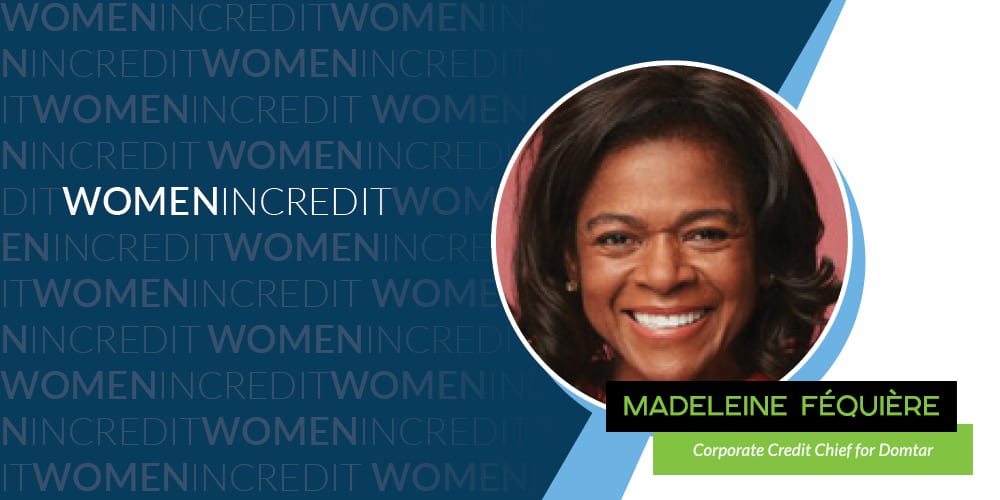Madeleine Féquière, Corporate Credit Chief for Domtar has over twenty-five years of management experience in corporate credit administration, credit risks & operations, credit enhancements, and global commerce. Before working at Domtar, Madeleine held various credit positions with Microsoft, Teleglobe, and Abitibi Bowater (now Resolute Forest Products).
We recently spoke with Madeleine about her experience as a leader in the credit risk management field.
AA: How did you get into the credit field?
MF: My first bachelor’s degree was in translation, and my first job out of school was with a French/English translation for a company called Ogilvie Mills Ltd which has since been sold to Archer Daniels Midland. Three months into the position, Human Resource suggested that I consider crossing over to the finance department. I have no idea why this was suggested, but I decided to follow their advice and never regretted it. The company supported my efforts in furthering my education in finance, then like everyone else in credit, I just landed into the field.
AA: What challenges, if any, have you faced being a woman in this industry?
MF: My challenge was to learn how to maneuver as a female in a male-dominated field. When I started in this industry, men were typically leading and women were in supporting positions. Nowadays, women have a strong presence in the credit field; and some of us are at the head of major international corporations. I worked my way up to higher positions by learning from my leaders, coupled with my education, curiosity, and interest in the field of credit.
AA: Are there any programs or initiatives dedicated to bringing more women into the field?
MF: I am not aware of any such initiative and not even certain that it’s required. There are a lot of women operating in the credit field at my level now. Credit departments are very diverse already. But it’s imperative that we get women interested in taking the lead of their departments. For instance, I’ve tried to lead by example by developing women leaders over the years. All we have to do is to trigger their aspiration to a higher position in the field. Work with and mentor the women in your department to convince them that they have all the qualifications to lead.
AA: How has the industry changed over the years?
MF: We made some progress by embracing technology to perform the critical aspects of the work but there is still much more to be done. The banking sector is leading with Fintech and we could follow with Creditech solutions. Ideally, a credit department should be fully automated for more accuracy, standardization, accountability, and productivity. For instance, at Domtar, we don’t use paper files and filing cabinets. We have automated most of our processes including credit risk, collections, customer data, credit approval, and credit scoring, etc. Credit departments must be granted the required budget to utilize current technology to stay relevant and efficient to CREDITUP their game.
AA: In what ways do you feel the industry could or should improve?
MF: I feel that the major credit organizations could benefit from working with colleges and universities to build on the future of the credit field. It would be great for students to be able to enroll in a degree in Credit Risk Management at any university. There is enough material to offer the maximum credits required. We are all in agreement that credit departments are an essential component of any company’s success therefore the credit organizations should take an advocacy role and help enhance the credibility and recognition of the credit field.
AA: What advice would you give to someone who is thinking about getting into the industry?
MF: First, one would definitely need a bachelor’s degree, it’s the minimum required. Second, be very curious, open-minded, willing, and ready to explore credit training with any of the various credit organizations. Third, get a mentor or two and learn from their experience. When I hire for any position, I insist that a candidate has at least a bachelor’s degree. Industry experience is not a must, but networking in credit groups is encouraged. The education and networking aspects of these groups are invaluable resources.
About Domtar:
Domtar Corporation is the largest integrated producer of uncoated free-sheet paper in North America and the second-largest in the world based on production capacity and is also a manufacturer of paper-grade pulp.
Did you enjoy this interview? Read about other Women In Credit that we have interviewed!
